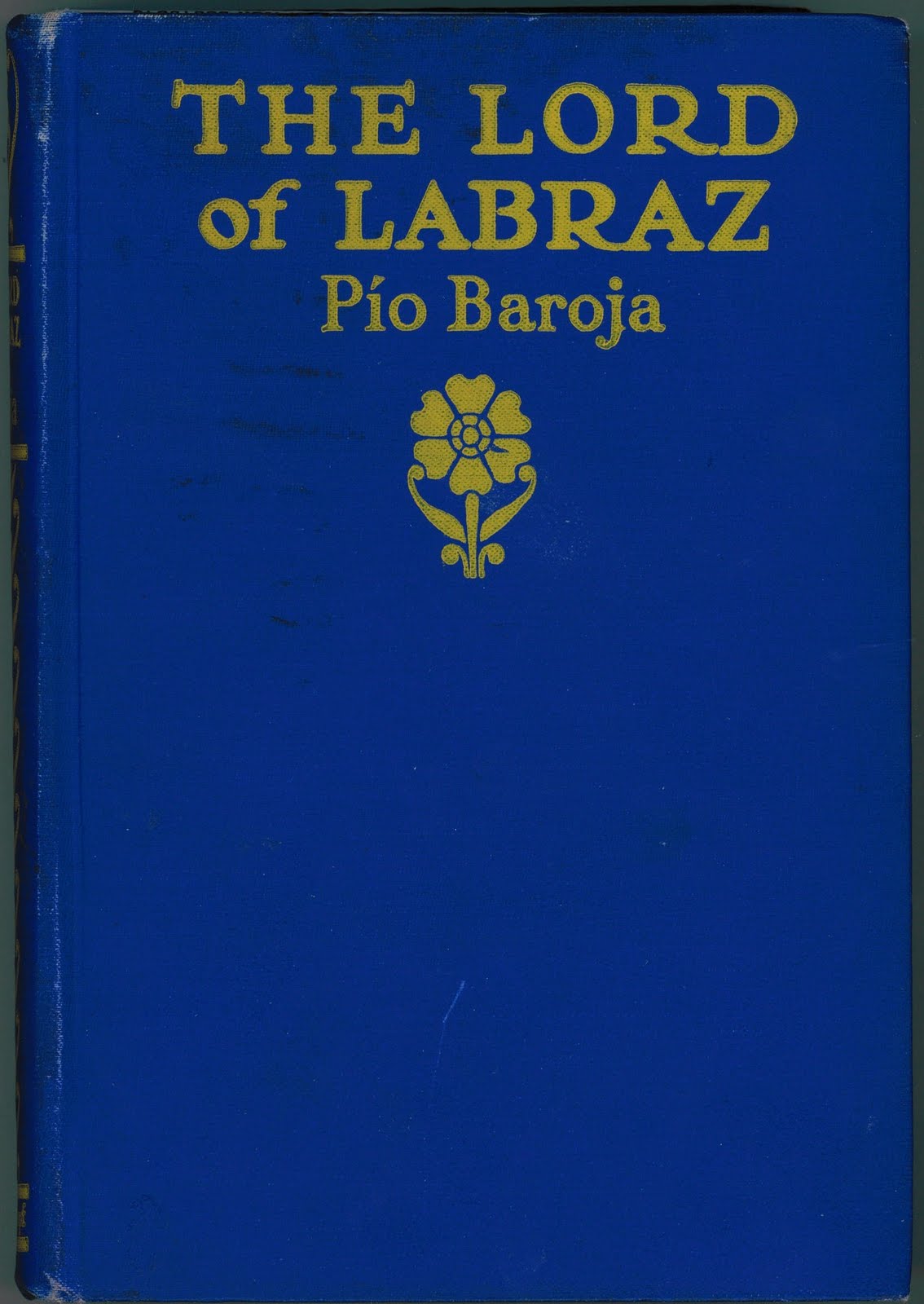I occasionally go back to posts, especially the online resources posts, to update them with additional information or links as I find them. Here are some updates to those posts: The podcast for the April 5th conference call in the Marathon2500 series. This podcast covers “War and Sports” with Professor Thomas Scanlon. I enjoyed it […]
Category: Uncategorized
The Lord of Labraz by Pío Baroja, translated by Aubrey F. G. Bell, Alfred A. Knopf, 1926 (originally released in 1903 in Spanish)I mentioned in an earlier post that decay was a central theme in this book. Labraz, an imaginary town set in the Cantabria region of Spain, fought progress tooth and nail and won […]
The Lord of Labraz by Pío Baroja, translated by Aubrey F. G. Bell, Alfred A. Knopf, 1926 (originally released in 1903 in Spanish) Labraz is a much simpler story than his Struggle for Life trilogy but that doesn’t make it less pleasurable to read. Structured (so far) like a romance, it’s fun to watch him […]
The Lord of Labraz by Pío Baroja, translated by Aubrey F. G. Bell, Alfred A. Knopf, 1926 (originally released in 1903 in Spanish) From TIME.com’s August 30, 1926 book reviews: The Spanish hail Señor Baroja as their most popular living talespinner. He writes a little like Dickens, a little like Stevenson, always like a Spaniard—that […]
The Lord of Labraz by Pío Baroja, translated by Aubrey F. G. Bell, Alfred A. Knopf, 1926 (originally released in 1903 in Spanish) I’ve discovered Pío Baroja recently and have enjoyed what I’ve read. To say he’s inconsistent in many areas would be an understatement but part of his writing has appealed to me. So […]
A few stray thoughts during the conference call covering Book One of The Landmark Arrian: The Campaigns of Alexander, translation by Pamela Mensch this evening, some have been bubbling beneath the surface while others were spurred by other comments. One of the first points discussed was Arrian’s assessment as a historian. For ancient historians, Herodotus […]
A few additional thoughts I wanted to add to my previous post on the battle at the Granicus River… To camp or not to camp 1. When Alexander learned of the concentration of the Persian forces, he advanced rapidly and encamped opposite the enemy, so that the Granicus flowed between the encampments. 2. The Persians, […]
Then he went to Delphi, to consult Apollo concerning the success of the war he had undertaken, and happening to come on one of the forbidden days, when it was esteemed improper to give any answers from the oracle, he sent messengers to desire the priestess to do her office; and when she refused, on […]
There are many aspects of Alexander that could be discussed from Book One such as the ingenuity demonstrated in avoiding the Thracian carts or in crossing the Danube with hay-filled tents. There is a lot to look at in his mature military tactics demonstrated at the Granicus River or his ability to improvise during the […]
Arrian takes pride in his work, most notably in the two prologues in Book One. In these passages he directly addresses the reader, stressing the greatness of his subject and, by association as his chronicler, of himself. I think it’s worth taking a minute to look at Arrian’s claims in these prefaces or prologues. The […]
